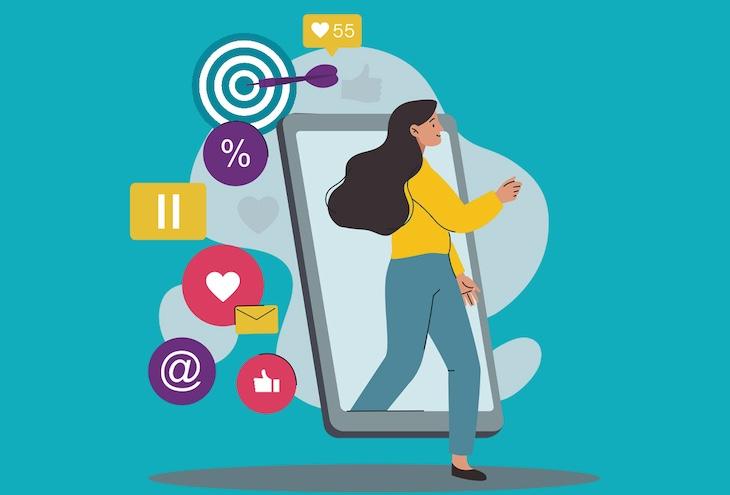Social media can be a great way to stay connected to family and friends, get updates on what’s going on in the world, and explore new opportunities. Unfortunately, there’s a downside to social media. It can impact your mental health and simply take up more of your time than you intend. Here are a few ways to get the most out of social media while managing your overall intake.
Identify What You Want to Change
We all use social media differently, so managing it is not a one-size-fits-all approach. Before you can truly make a change, you need to identify what you want to adjust. Are you looking to spend less time on social media, engage on fewer platforms, or be more thoughtful about the content you post? Once you know what you’re looking to change about your social media habits, you’ll be better equipped to make it happen.
Limit Your Time
A recent study of 230 college students found that when they cut their social media usage to 30 minutes per day, they experienced less anxiety, depression, and loneliness. By limiting your daily intake, you create more separation from social media and are better able to live in real time. Additionally, the study revealed that even students who exceeded 30 minutes per day but were actively trying to cut back reported positive mental health benefits.
Delete Unnecessary Apps
The average cell phone user in the United States has 80 apps on their phone but uses only about 38 percent of them. An easy way to spend less time on social media is to delete those underused apps. While removing an app doesn’t delete your account, it does require extra steps to access your information through the website. For many, out of sight means out of mind. If you don’t see the app tile, you may be less tempted to access some platforms. If you find that you miss the app, you can always reinstall it.
Set Specific Times
Viewing social media only during designated times will help you manage your intake. According to recent data from Gallup, teens spend almost five hours every day on social media — almost as much time as they spend in school! Set specific times to access social media so that your day is not consumed by it.
Focus on Other Activities
Whether you love horseback riding or soccer, focusing on activities that are not tied to a screen can help keep your on-screen time in check. Research has shown that students who spend more time on activities, such as sports, socializing with friends, or taking music lessons, are happier than those who spend that time glued to a screen. Being involved in off-screen activities leaves less time for social media, effectively helping you manage your intake without having to make conscious decisions about it.
Taking control of your social media time is important for your overall mental health. Managing your screen time allows you to stay connected to real-life activities like socializing with friends while reducing depression and anxiety that can be linked to excessive exposure to social media. You can manage your intake in both big and small ways — try experimenting with different options. The goal is to ensure that your screen time does not consume all of your time and that you develop a healthy relationship with social media.
ON TOPIC
We live in a fast-paced, digital world filled with “breaking news.” The fear of missing out (FOMO) or being the last to know leads to the constant need to patrol social media feeds. But this attachment to on-demand information is proving to be unhealthy. Below are some alarming statistics about Americans’ social media consumption.
- The average American checks their phone 46 times a day, according to a survey by Deloitte. And that’s just the average. The survey dug deeper and revealed a correlation between age and the frequency of phone checks: those aged 18–24 checked their phones 74 times per day; those aged 25–34, 50 times; and those aged 35–44, 35 times.
- 81 percent of Americans check their phones while dining out. Consider what that means. Even when spending time with real people in real time, the majority of the population is distracted by what’s happening — or might be happening — on social media. Next time you’re out to eat, take notice. And remember engaging in real conversation and spending time with real people is much more fulfilling.
- While it can be an effective way to connect with others and express opinions, 58 percent of Americans say social media negatively affects their mental health. Among those, 64 percent experience anxiety from using social media, 56 percent experience depression, 52 percent experience FOMO, and 51 percent experience body image issues.
While everyone’s relationship with — and response to — social media is different, consider these possible benefits from limiting your screen time:
- Improved sleep
- Better and more thoughtful interaction with friends and family
- Increased sense of satisfaction — and decreased FOMO
- More free time to try new things and do what you love














